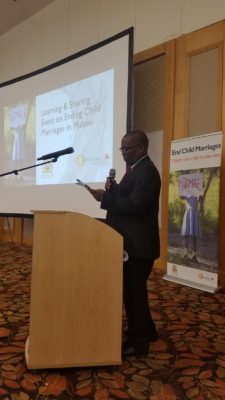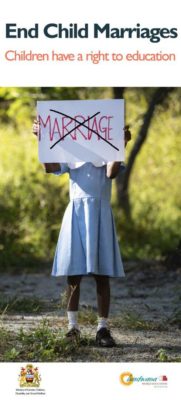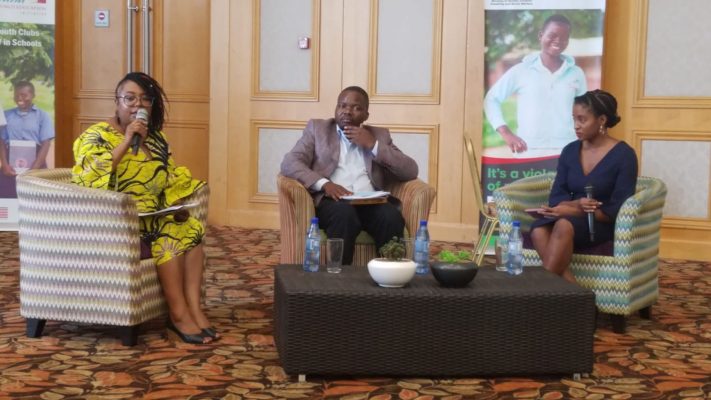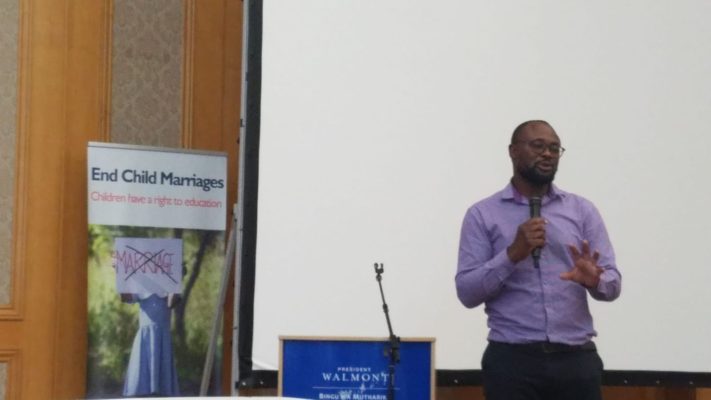WEI/Bantwana Convenes Meeting to Respond to Child Marriage in Malawi
How do you tackle a social problem as deeply entrenched as child marriage? Despite the concerted efforts of many donors and implementing partners over the years, child marriage remains widespread in many countries.

Malawi has one of the highest burdens of child marriage in the world: 47% of women in Malawi marry by age 18 as compared to only 8% of men marrying at that young age (DHS Malawi). Historically, there has been very little variation in these rates, as girls continue to be subjected to coming of age rituals or given in marriage for repayment of loans or to gain financial resources for the family.

The Bantwana Initiative of World Education, Inc. (WEI/Bantwana) brought together representatives from the government of Malawi, academia and civil society organizations to the Bingu WaMutharika International Center in Lilongwe for two days in March 2019 to discuss how to address child marriage in Malawi. The event, which was organized jointly by WEI/Bantwana and the Ministry of Gender, Children, Disability and Social Welfare, encouraged participants to foster partnerships to create a future full of opportunities for Malawi’s youth. Participants submitted abstracts through a competitive process to identify the most relevant and actionable topics for discussion.
Participants commended the Government of Malawi for the positive changes it has made in the country’s legal framework to address early marriage and other harmful practices affecting girls, including a recently enacted law that criminalized marriage before age 18. However, while the policy environment has improved, participants noted that challenges remain in the implementation of these policies, and asked for better coordination and dissemination of information with media campaigns playing an important role in this effort. They also pointed out the crucial role of traditional leaders in encouraging communities to accept policies and amplify their reach.

Best practices for both prevention and response to child marriage focused on three main themes:
- The importance of engaging diverse stakeholders, including community members, service providers, and local officials in discussions and negotiations at the community level around child marriage.
- The importance of recognizing girls as agents of change and empowering them to speak out about their rights, all while providing support to link victims to services.
- The need to contextualize interventions and look critically into the root causes of child marriage to understand the circumstances driving decisions (including those girls who might freely choose to enter early marriage due to misconceptions around the practice).

At the end of the meeting, representatives from UNICEF and the Malawi Ministry of Gender encouraged local organizations and implementing partners to improve their collaboration with each other and with the government to foster coordination, innovation, and scale. Mbonisi Tshuma, Country Director for World Education Malawi reiterated the importance of collaboration to put an end once and for all to child marriage in Malawi: “So much has been done, but so much more still needs to be done. Stakeholders need to collaborate and leverage on each other’s expertise and experiences to combat this challenge for the fight to be won.”
———–
World Education/Bantwana has a long history of successfully working with local partners to design, manage, and evaluate community-based initiatives to advance the conditions of girls and women. World Education’s programs help girls enroll and stay in school. WEI/Bantwana’s program in Malawi, implemented with EngenderHealth’s Essential Gender Based Violence Services project, addresses school-related gender-based violence by improving the ability of both girls and boys to protect themselves from SRGBV through a targeted peer-led curriculum that equips them with knowledge of the manifestations of SRGBV and provides them with the life skills to respond to and report abuses. This learning event on Child Marriage complements the work of WEI/Bantwana in Malawi.
